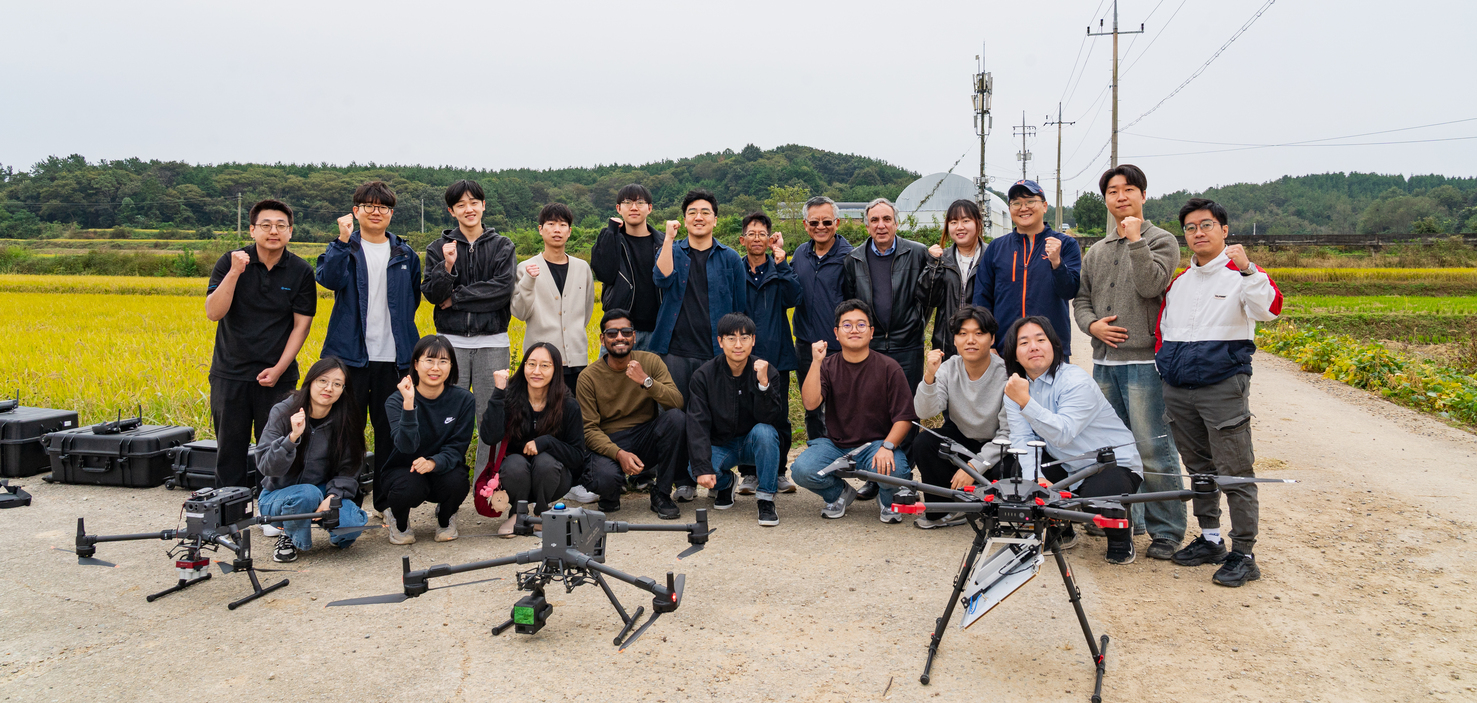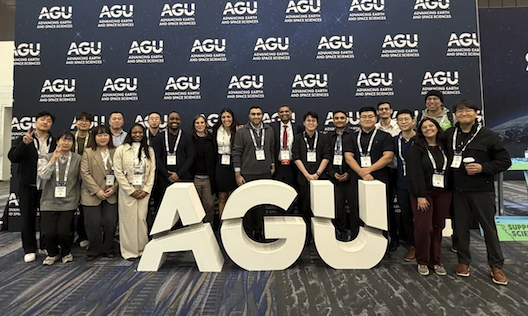우리 수문 원격탐사 인공지능 연구실(HydroAI)은 기후변화/인간 활동에 의한 환경의 변화와 자연재해/수자원 예측 및 분석을 위해 마이크로파 위성 및 수치모델 자료와 AI/기계학습 기술을 적극 활용합니다. 전 지구적 규모로 발생하는 자연재해(가뭄, 홍수, 산불, 황사 등) 및 수자원을 위성 영상을 통해 더욱 신속하고 정확하게 예측하는 것은 기후변화에 대응한 가장 중요한 연구 분야로 주목받고 있습니다. 우리 연구실에서 현재 진행하고 있는 프로젝트는 여기에서 확인이 가능합니다.
• 박사후연구원 채용. 기본급 9,000만원/연 + @. 가족기숙자 입주(2년) 및 국외 학술 대회 참석 지원 (InnoCore AITA group)
• 위성 원격 탐사, 수치모델, 기후변화, 환경/원격탐사 분야 Domain Scientist로 AI/기계학습 방법론 적용 연구에 대한 열정을 가지고 있는 학부생 및 대학원 진학 예정 학생을 환영합니다.
• (2026년도) GPT-5와 같은 최신 대규모 언어 모델(LLM)을 환경·수문·위성 데이터 분석에 특화되도록 파인튜닝하는 연구에 관심있는 학생 및 연구자
• (2026년도) Surface Water and Ocean Topography (SWOT) 위성 및 Synthetic-Aperture Radar (SAR)를 활용한 유출량 및 지표변수 측정에 관심이 있는 학생 및 연구자
• 딥러닝 방법론 중 physics-informed neural networks (PINNs), partial convolution neural network (PCNN), super-resolution GAN (SRGAN), reinforcement learning (RL) 등을 활용한 위성 이미지 분석 및 정확도 향상, long short-term memory (LSTM), gated recurrent unit (GRU), Transfer Learning (TL) 을 활용한 수재해 예측, loss function 개발에 관심이 있는 학생 및 연구자
• If you are passionate about hydrology, remote sensing, and machine learning applications in Earth sciences, please feel free to contact me.
• Postdoctoral researcher position available. Base salary of KRW 90 million per year plus additional benefits. Family housing provided for two years. Strong support for attending an international conference per year plus additional opportunities through the InnoCore AITA group.(InnoCore AITA group)
• We welcome undergraduate students and prospective graduate students who are passionate about applying AI and machine learning methodologies as domain scientists in satellite remote sensing, numerical modeling, climate change, and environmental sciences.
• For 2026, we seek students and researchers interested in fine-tuning state-of-the-art large language models such as GPT-5 for environmental, hydrological, and satellite data analysis.
• For 2026, we also seek students and researchers interested in using the Surface Water and Ocean Topography (SWOT) satellite and Synthetic-Aperture Radar (SAR) for runoff estimation and surface variable measurements.
• We welcome students and researchers interested in deep learning methodologies, including physics-informed neural networks, partial convolution neural networks, super-resolution GAN, and reinforcement learning for satellite image analysis and accuracy improvement, as well as long short-term memory, gated recurrent units, and transfer learning for natural disaster prediction and land surface modeling, including the development of specialized loss functions.
• Before reaching out to me, you can visit this page for what opportunities are currently available. I'm excited to work with the next generation of researchers in this exciting and rapidly evolving field.
AI/Machine Learning
We use foundation models and deep learning approaches, along with the application of Bayesian theorem, to predict natural phenomena and improve the accuracy of our data.
Satellite Remote Sensing
We utilize various Earth observing satellite systems to monitor the dynamics of Earth's systems and gain insight into the global water cycle.
Earth System Modeling
We utilize land surface models at various scales to comprehend physical processes and examine how the land surface and atmosphere interact with each other on the ground.
Data Assimilation
We integrate data from ground, satellites, and land surface models to improve the quality and quantity of the data, leading to a better understanding of Earth's processes.























